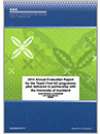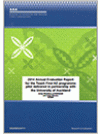Partnership Schools | Kura Hourua (PSKH) are a new kind of school/kura outside the state system. The sponsors of PSKH are accountable to the Crown for raising student achievement through contracts to achieve specified school-level targets. Contracts will be renewed or revoked depending on the sponsor's performance. The most significant difference between Partnership Schools | Kura Hourua and other schools (private and state) is that they have more flexibility about how they operate and use their funding, including over curriculum, qualifications, staff pay and conditions, hours of operation, and school leadership. It is expected that this flexibility will provide the opportunity for PSKH to be innovative, but the extent to which they do things differently from state or private schools is up to the sponsor.
In summary, the policy intent is that if the schools/kura have clear outcome-focused accountability, freedom to manage and govern, and a broadly similar level of funding to that for state schools, they will then be able to develop innovative solutions that match local needs while still meeting high quality standards. This, in turn, will enable them to attract students who have previously not been well served by the education system and lead to equitable achievement outcomes for those students.
Five schools/kura opened in February 2014 and a further four schools/kura opened in February 2015.
Evaluation design and methodology – overview
MartinJenkins is conducting a multi-year evaluation of the PSKH policy for the Ministry. The overall purpose of the evaluation is to assess the extent to which the PSKH policy has delivered what it intended to deliver with regard to flexibility, innovation and student outcomes. Over the course of the evaluation its focus progressively shifts from understanding the early operation and implementation of PSKH, to exploring whether the policy is creating the conditions for success and, finally, assessing achievement of intended outcomes. The evaluation is framed to answer four overarching evaluation questions over this time.
- Question 1: What does the policy look like and to what extent is delivery aligned with design intent?
- Question 2: To what extent are conditions for successful delivery of the policy in place?
- Question 3: What outcomes were achieved and were they achieved through the mechanisms that were envisaged?
- Question 4: What lessons can be drawn from the PSKH experience and what are the implications of these lessons for improving the design and delivery of the policy?
The evaluation complements other monitoring and review information that looks at how the schools/kura are performing:
- The Ministry assesses quarterly and annual reports provided by the PSKH as part of their contracts, including information about whether the schools/kura are meeting their agreed targets.
- The Education Review Office (ERO) conducts a readiness review before the schools/kura open, a New Schools Assurance Review approximately 6 months after opening, and an Education Review approximately 18 months after opening, with regular reviews thereafter – this is the same as for state schools.
- The Partnership Schools | Kura Hourua Authorisation Board monitors the schools'/kura's educational performance.
Note all of these activities relate to review of performance at the individual school/kura level. By contrast, to minimise overlap and maximise value-add, the MartinJenkins evaluation focuses more on how the PSKH policy works in practice, rather than the performance of individual schools/kura.


